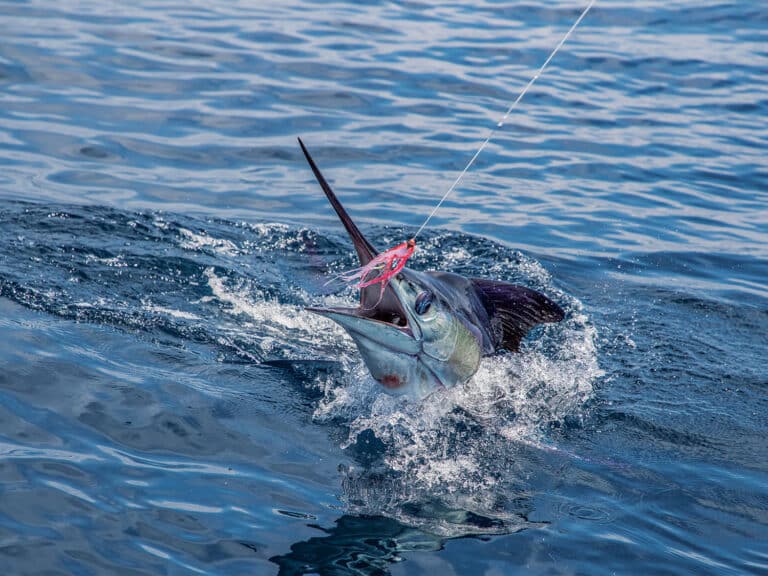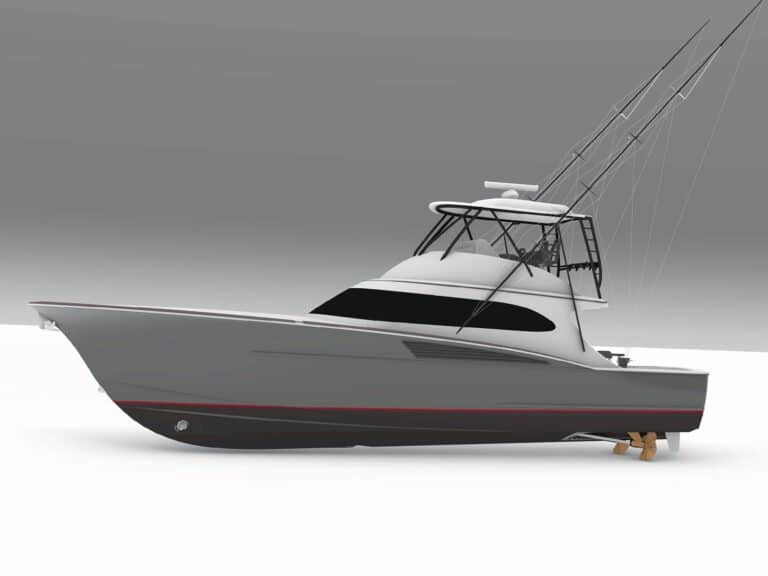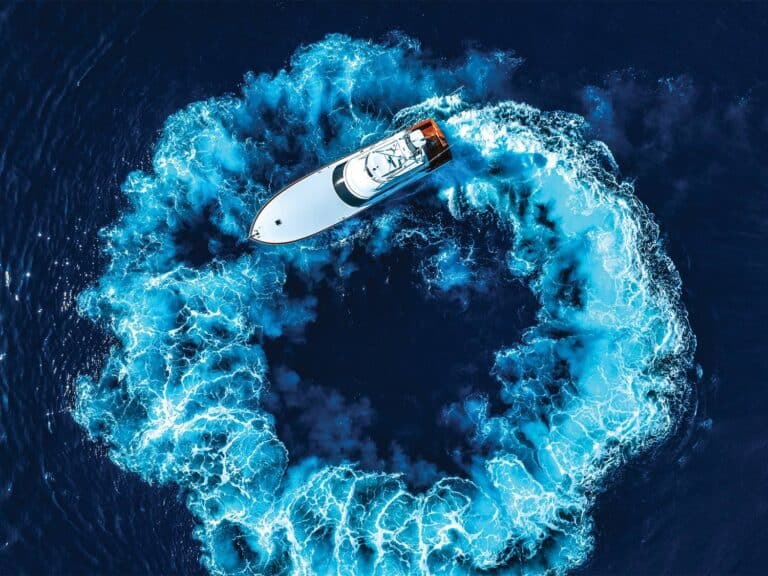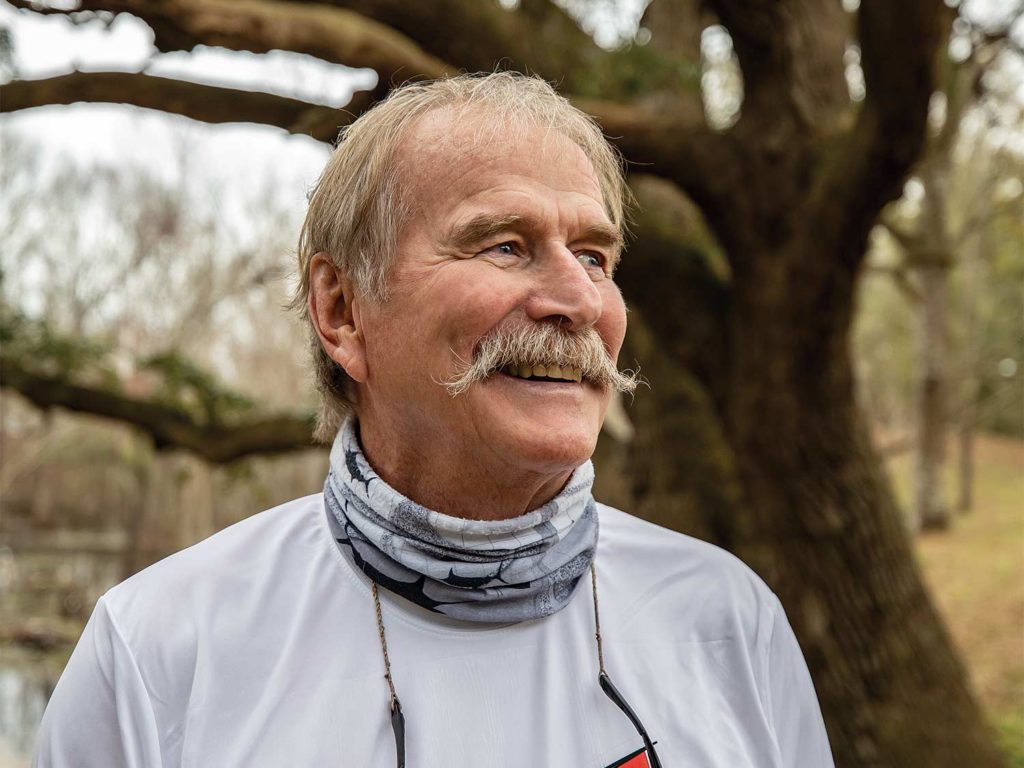
Growing up on North Carolina’s Outer Banks, Charles Perry had it all—surfing, fishing and chasing girls—until Uncle Sam came calling and he was sent to war in Vietnam. Afterward, he visited Australia, a trip that launched one of the most extensive fishing careers in the sport. Along the way, he has wired and/or weighed 28 certified 1,000-plus-pound black marlin, and released countless more over the mark in later years, fishing with Capt. Peter B. Wright. Perry was also part of the Chunda team with Stewart Campbell and Capt. Bark Garnsey, traveling the globe in search of world records. He was presented with the IGFA’s Tommy Gifford Award in 2011 as one of the sport’s legendary captains and crews, and currently sits on the board that approves future award recipients.
Q: How did you make the transition from charter fishing in North Carolina to traveling internationally?
A: Vietnam. I got drafted in the Army after high school, and they shipped me off to Southeast Asia. While I didn’t enjoy my time there, I did like the traveling component. I knew I wanted to travel more, and the only way I could do it was through fishing so I could make a living.
Watch: Marlin University instructor Bo Jenyns teaches proper wiring technique in this video.
Q: When did you get to Australia, and what was the fishing like back then?
A: I first went to Australia in 1972 to visit a friend and to surf. I fell in love with the people and the countryside. I wanted to stay and decided that fishing was the best way to live there. Fishing on the reef was totally different than what it is today. I’m sorry it couldn’t stay like it was for more people to experience. You used to be able to anchor behind or in front of the reefs like Jenny Louise Shoal or Linden Bank. Lizard Island was only 120 miles away. Other boats were scattered up and down the reefs until someone found the fish, and then we all moved in together. As a fleet, you were covering 120 miles. Every day, it was something new.
Q: When did you first meet Capt. Peter B. Wright, and what was the biggest black you caught with him?
A: The first time I met Peter, I was in bed with his female roommate. He came home, introduced himself, and we immediately started talking fishing. I couldn’t believe they were roommates, and I was worried that I had ruined my chance to fish with him, but as it turned out, it was the best thing that ever happened. That was in 1973, and by 1974, he wanted me to be his number-one wireman. The first year we fished together, we had only 69 days on the water, but we caught 136 black marlin. We had several over 1,200 pounds, but I think the biggest was over 1,300 pounds. My personal best was a 1,417 that was the Australian record—Peter broke it 10 days later with a 1,442.
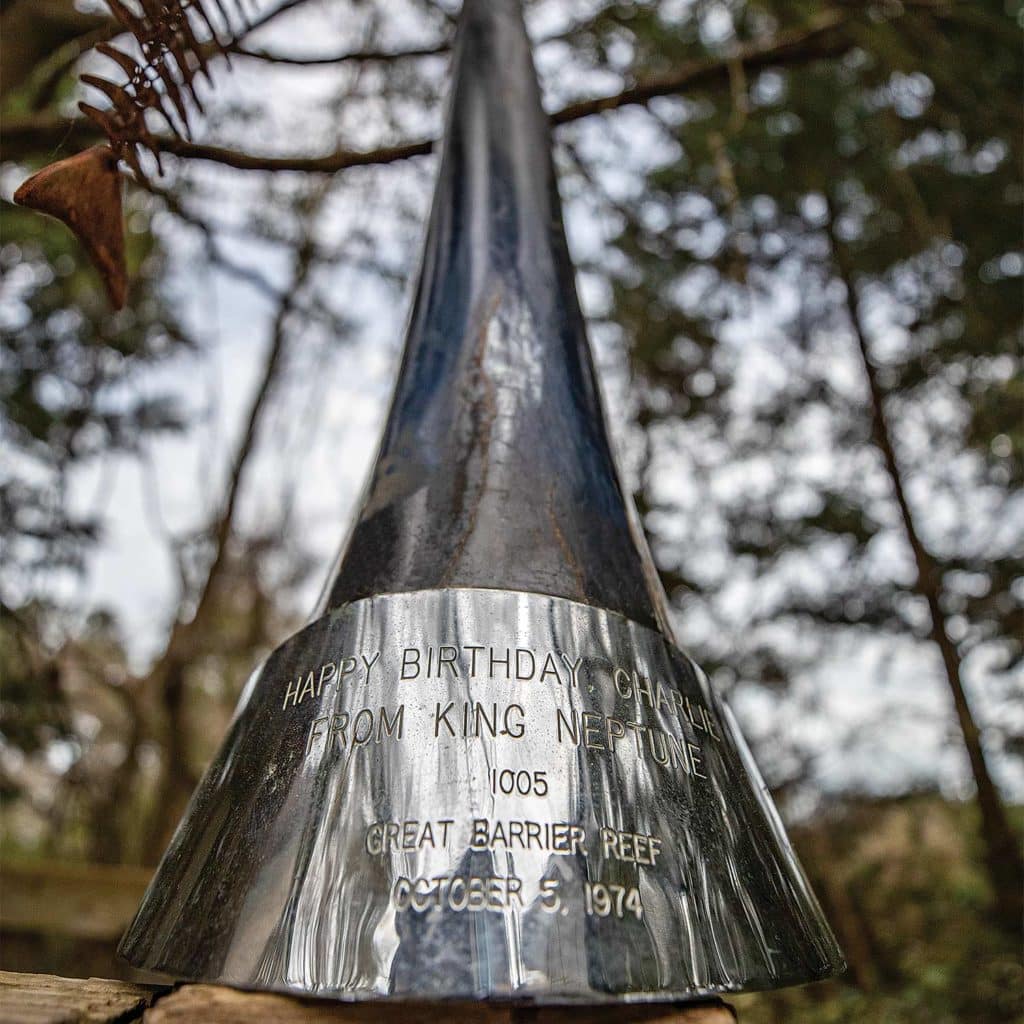
Q: What did you most enjoy about fishing with the late Stewart Campbell?
A: Honestly, I enjoyed all of it. His dedication and total focus on catching world records was really special to be a part of, which is why he holds, or had held, so many records. He would pass on so many other species when the bite was good to not take time away from hunting and catching marlin.
Q: You’re widely regarded as one of the best wiremen in the sport. What’s the hardest part about leadering a 1,000-pound marlin?
A: You have to have confidence working the wire and trust in whoever is running the boat, because if you get in a bind, you need a captain who will give you some relief. Back then, we used double-twisted wire with cable on the end, which was something that wasn’t going to break. You needed to know how to not get caught up in it.
Q: Any close calls?
A: You’re talking to the president of the Underwater Wireman’s Club! Yes, I’ve been pulled in three times. We figured out later that the boat I was on at the time had lower gunwales than I was used to working. When you mix that with the pull of big blacks, it was the perfect storm.
Q: Of all the places you’ve fished in the world, what are some of your favorites?
A: Without a doubt, my favorite place to fish in the world is the Outer Banks of North Carolina. The eddies of the Gulf Stream that turn counterclockwise and break off the Labrador Current spin down the coast and hold tons of bait. The white marlin stay in those eddies, and it’s just phenomenal. The Great Barrier Reef, Cape Verde and Madeira are all great places to fish, but they’re very seasonal. In the Outer Banks, you have your choice of bluefin and yellowfin tuna, blue marlin, white marlin, sailfish, cobia and red drum during various times of the year. That kind of variety is hard to beat.
Q: You fished with Capt. Bark Garnsey for 14 years. What’s the key to that kind of longevity?
A: The right owner putting together the right crew. With Bark, we really fit together well. I had a ton of experience wiring big fish and also leadering in a hurry when we were world-record fishing because we were killing these giant fish.
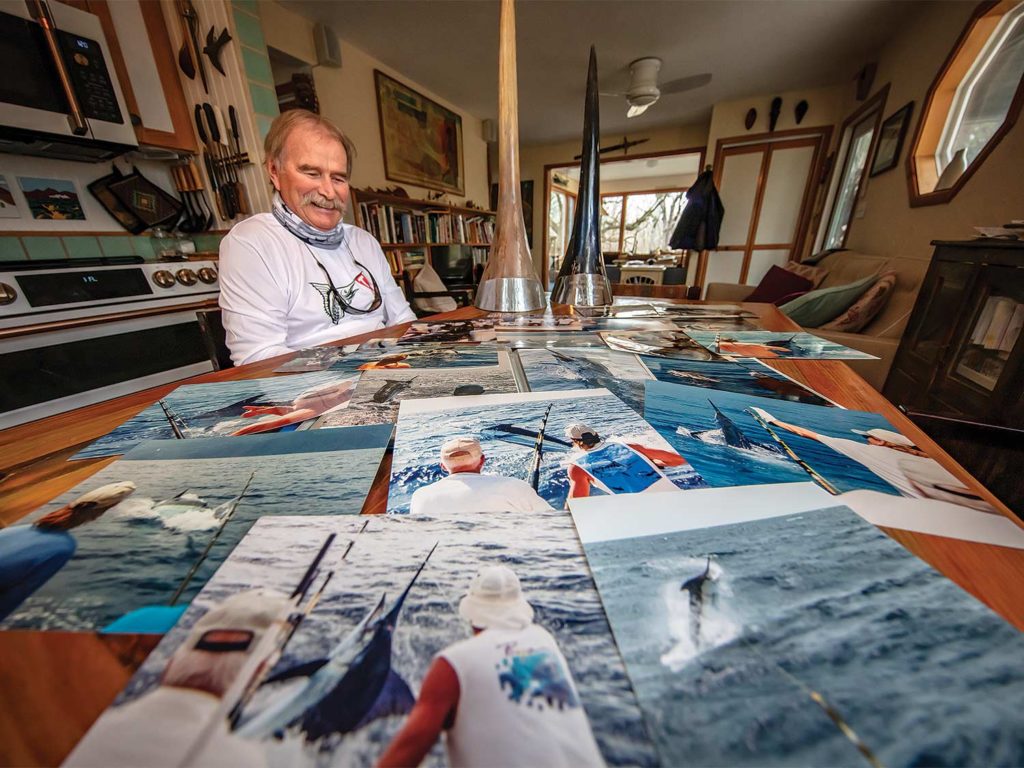
Q: Is it true that you once pedaled a unicycle a thousand miles up the coast in Australia?
A: Yep. There’s no two ways about it—I was crazy back then. It started when someone stole my bike. My roommate at the time had a unicycle that nobody could figure out how to ride. I taught myself how to do it, and I rode that thing everywhere.
Q: Are there any modern innovations you wish you’d had access to back then?
A: I guess I’m too old-school, but I do not care for this new sonar stuff. I know technology is going to change things, but it’s not for me. It’s somewhat sad that this new technology eliminates the in-person, live signs that make you a good fishermen. If Barky and I had had that technology, it would have eliminated all the conversations we’d had about what we were going to do next. We didn’t need it handed to us; we liked finding the fish on our own.
Read Next: Learn Charles Perry’s wiring methods here.
Q: What advice would you give to the next generation of deckhands coming up through the ranks?
A: It starts with a seriously good work ethic, and you need to get really good at mastering the craft. You need experience, and do it enough to have confidence in not only fishing, but also managing the cockpit. And you also need to have good people and communication skills. That is so overlooked today.
Q: Favorite fishing memory?
A: Without a doubt, it was catching a 522-pound blue marlin with my mother. That stood out to me more than any other fish. The most exciting fish aren’t always the granders; they are the fish that give us a challenge.



